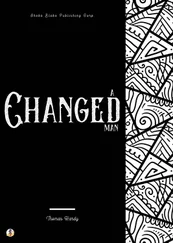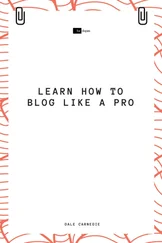Sheba Blake - Amelia
Здесь есть возможность читать онлайн «Sheba Blake - Amelia» — ознакомительный отрывок электронной книги совершенно бесплатно, а после прочтения отрывка купить полную версию. В некоторых случаях можно слушать аудио, скачать через торрент в формате fb2 и присутствует краткое содержание. Жанр: unrecognised, на английском языке. Описание произведения, (предисловие) а так же отзывы посетителей доступны на портале библиотеки ЛибКат.
- Название:Amelia
- Автор:
- Жанр:
- Год:неизвестен
- ISBN:нет данных
- Рейтинг книги:4 / 5. Голосов: 1
-
Избранное:Добавить в избранное
- Отзывы:
-
Ваша оценка:
- 80
- 1
- 2
- 3
- 4
- 5
Amelia: краткое содержание, описание и аннотация
Предлагаем к чтению аннотацию, описание, краткое содержание или предисловие (зависит от того, что написал сам автор книги «Amelia»). Если вы не нашли необходимую информацию о книге — напишите в комментариях, мы постараемся отыскать её.
Amelia — читать онлайн ознакомительный отрывок
Ниже представлен текст книги, разбитый по страницам. Система сохранения места последней прочитанной страницы, позволяет с удобством читать онлайн бесплатно книгу «Amelia», без необходимости каждый раз заново искать на чём Вы остановились. Поставьте закладку, и сможете в любой момент перейти на страницу, на которой закончили чтение.
Интервал:
Закладка:
Chapter IV

D isclosing further secrets of the prison-house.
The first persons whom they passed by were three men in fetters, who were enjoying themselves very merrily over a bottle of wine and a pipe of tobacco. These, Mr. Robinson informed his friend, were three street-robbers, and were all certain of being hanged the ensuing sessions. So inconsiderable an object, said he, is misery to light minds, when it is at any distance.
A little farther they beheld a man prostrate on the ground, whose heavy groans and frantic actions plainly indicated the highest disorder of mind. This person was, it seems, committed for a small felony; and his wife, who then lay-in, upon hearing the news, had thrown herself from a window two pair of stairs high, by which means he had, in all probability, lost both her and his child.
A very pretty girl then advanced towards them, whose beauty Mr. Booth could not help admiring the moment he saw her; declaring, at the same time, he thought she had great innocence in her countenance. Robinson said she was committed thither as an idle and disorderly person, and a common street-walker. As she past by Mr. Booth, she damned his eyes, and discharged a volley of words, every one of which was too indecent to be repeated.
They now beheld a little creature sitting by herself in a corner, and crying bitterly. This girl, Mr. Robinson said, was committed because her father-in-law, who was in the grenadier guards, had sworn that he was afraid of his life, or of some bodily harm which she would do him, and she could get no sureties for keeping the peace; for which reason justice Thrasher had committed her to prison.
A great noise now arose, occasioned by the prisoners all flocking to see a fellow whipt for petty larceny, to which he was condemned by the court of quarter-sessions; but this soon ended in the disappointment of the spectators; for the fellow, after being stript, having advanced another sixpence, was discharged untouched.
This was immediately followed by another bustle; Blear-eyed Moll, and several of her companions, having got possession of a man who was committed for certain odious unmanlike practices, not fit to be named, were giving him various kinds of discipline, and would probably have put an end to him, had he not been rescued out of their hands by authority.
When this bustle was a little allayed, Mr. Booth took notice of a young woman in rags sitting on the ground, and supporting the head of an old man in her lap, who appeared to be giving up the ghost. These, Mr. Robinson informed him, were father and daughter; that the latter was committed for stealing a loaf, in order to support the former, and the former for receiving it, knowing it to be stolen.
A well-drest man then walked surlily by them, whom Mr. Robinson reported to have been committed on an indictment found against him for a most horrid perjury; but, says he, we expect him to be bailed today. “Good Heaven!” cries Booth, “can such villains find bail, and is no person charitable enough to bail that poor father and daughter?” “Oh! sir,” answered Robinson, “the offence of the daughter, being felony, is held not to be bailable in law; whereas perjury is a misdemeanor only; and therefore persons who are even indicted for it are, nevertheless, capable of being bailed. Nay, of all perjuries, that of which this man is indicted is the worst; for it was with an intention of taking away the life of an innocent person by form of law. As to perjuries in civil matters, they are not so very criminal.” “They are not,” said Booth; “and yet even these are a most flagitious offence, and worthy the highest punishment.” “Surely they ought to be distinguished,” answered Robinson, “from the others: for what is taking away a little property from a man, compared to taking away his life and his reputation, and ruining his family into the bargain?—I hope there can be no comparison in the crimes, and I think there ought to be none in the punishment. However, at present, the punishment of all perjury is only pillory and transportation for seven years; and, as it is a traversable and bailable offence, methods are found to escape any punishment at all.”[Footnote: By removing the indictment by certiorari into the King’s Bench, the trial is so long postponed, and the costs are so highly encreased, that prosecutors are often tired out, and some incapacitated from pursuing. Verbum sapienti. ]
Booth exprest great astonishment at this, when his attention was suddenly diverted by the most miserable object that he had yet seen. This was a wretch almost naked, and who bore in his countenance, joined to an appearance of honesty, the marks of poverty, hunger, and disease. He had, moreover, a wooden leg, and two or three scars on his forehead. “The case of this poor man is, indeed, unhappy enough,” said Robinson. “He hath served his country, lost his limb, and received several wounds at the siege of Gibraltar. When he was discharged from the hospital abroad he came over to get into that of Chelsea, but could not immediately, as none of his officers were then in England. In the mean time, he was one day apprehended and committed hither on suspicion of stealing three herrings from a fishmonger. He was tried several months ago for this offence, and acquitted; indeed, his innocence manifestly appeared at the trial; but he was brought back again for his fees, and here he hath lain ever since.”
Booth exprest great horror at this account, and declared, if he had only so much money in his pocket, he would pay his fees for him; but added that he was not possessed of a single farthing in the world.
Robinson hesitated a moment, and then said, with a smile, “I am going to make you, sir, a very odd proposal after your last declaration; but what say you to a game at cards? it will serve to pass a tedious hour, and may divert your thoughts from more unpleasant speculations.”
I do not imagine Booth would have agreed to this; for, though some love of gaming had been formerly amongst his faults, yet he was not so egregiously addicted to that vice as to be tempted by the shabby plight of Robinson, who had, if I may so express myself, no charms for a gamester. If he had, however, any such inclinations, he had no opportunity to follow them, for, before he could make any answer to Robinson’s proposal, a strapping wench came up to Booth, and, taking hold of his arm, asked him to walk aside with her; saying, “What a pox, are you such a fresh cull that you do not know this fellow? why, he is a gambler, and committed for cheating at play. There is not such a pickpocket in the whole quad.”[Footnote: A cant word for a prison.]
A scene of altercation now ensued between Robinson and the lady, which ended in a bout at fisticuffs, in which the lady was greatly superior to the philosopher.
While the two combatants were engaged, a grave-looking man, rather better drest than the majority of the company, came up to Mr. Booth, and, taking him aside, said, “I am sorry, sir, to see a gentleman, as you appear to be, in such intimacy with that rascal, who makes no scruple of disowning all revealed religion. As for crimes, they are human errors, and signify but little; nay, perhaps the worse a man is by nature, the more room there is for grace. The spirit is active, and loves best to inhabit those minds where it may meet with the most work. Whatever your crime be, therefore I would not have you despair, but rather rejoice at it; for perhaps it may be the means of your being called.” He ran on for a considerable time with this cant, without waiting for an answer, and ended in declaring himself a methodist.
Читать дальшеИнтервал:
Закладка:
Похожие книги на «Amelia»
Представляем Вашему вниманию похожие книги на «Amelia» списком для выбора. Мы отобрали схожую по названию и смыслу литературу в надежде предоставить читателям больше вариантов отыскать новые, интересные, ещё непрочитанные произведения.
Обсуждение, отзывы о книге «Amelia» и просто собственные мнения читателей. Оставьте ваши комментарии, напишите, что Вы думаете о произведении, его смысле или главных героях. Укажите что конкретно понравилось, а что нет, и почему Вы так считаете.












